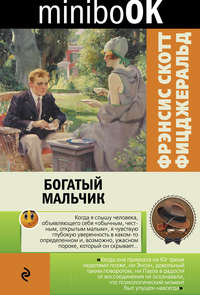Сборник лучших произведений американской классической литературы. Уровень 4

Полная версия
Сборник лучших произведений американской классической литературы. Уровень 4
Жанр: зарубежная классикаизучение языкованглийский языклексический материалтекстовый материаламериканская классикаадаптированный английскийзнания и навыкикниги для чтения на английском языке
Язык: Английский
Год издания: 2021
Добавлена:
Серия «Легко читаем по-английски»
Настройки чтения
Размер шрифта
Высота строк
Поля
Конец ознакомительного фрагмента
Купить и скачать всю книгу











